 Back to Exhibitions
Back to Exhibitions
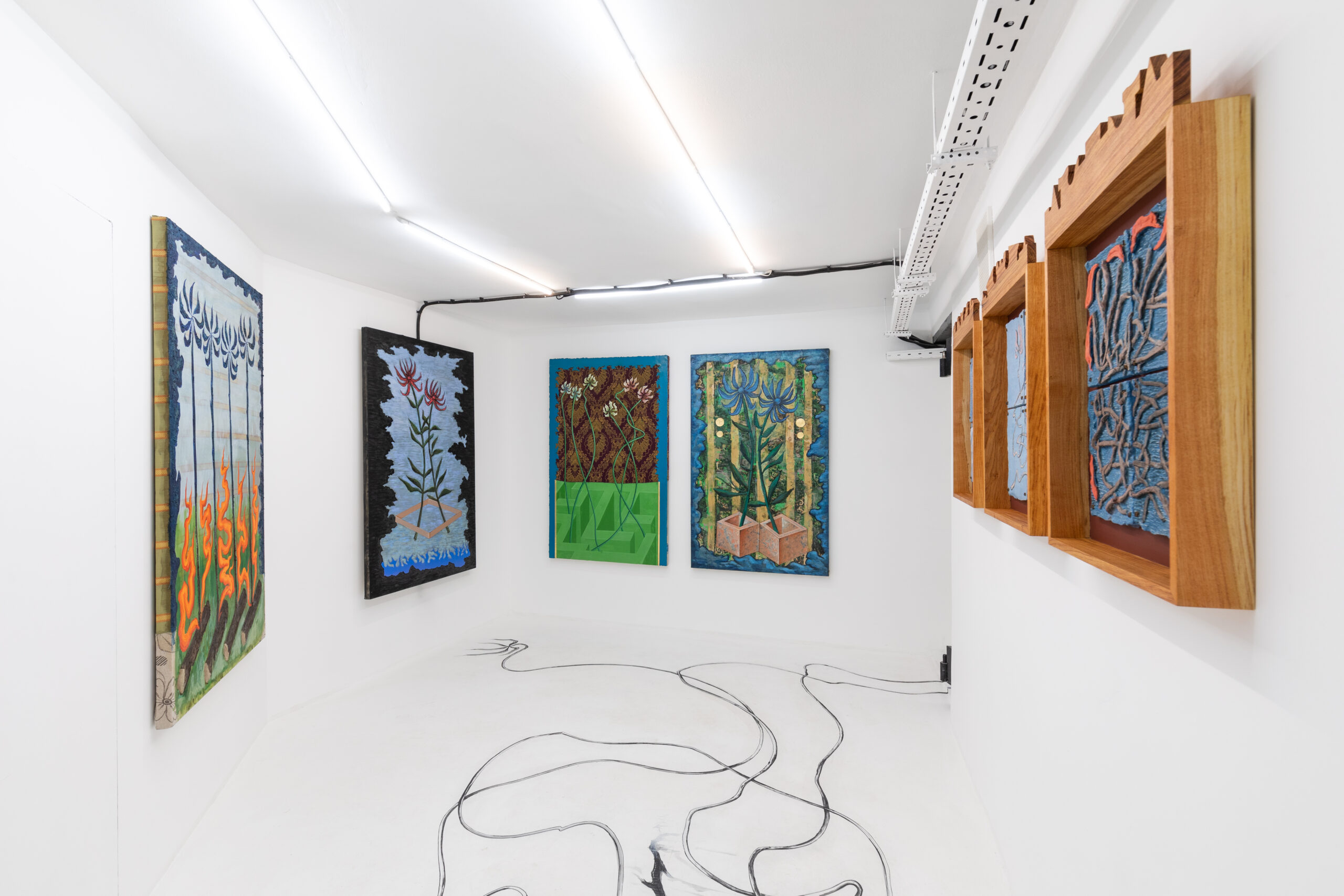
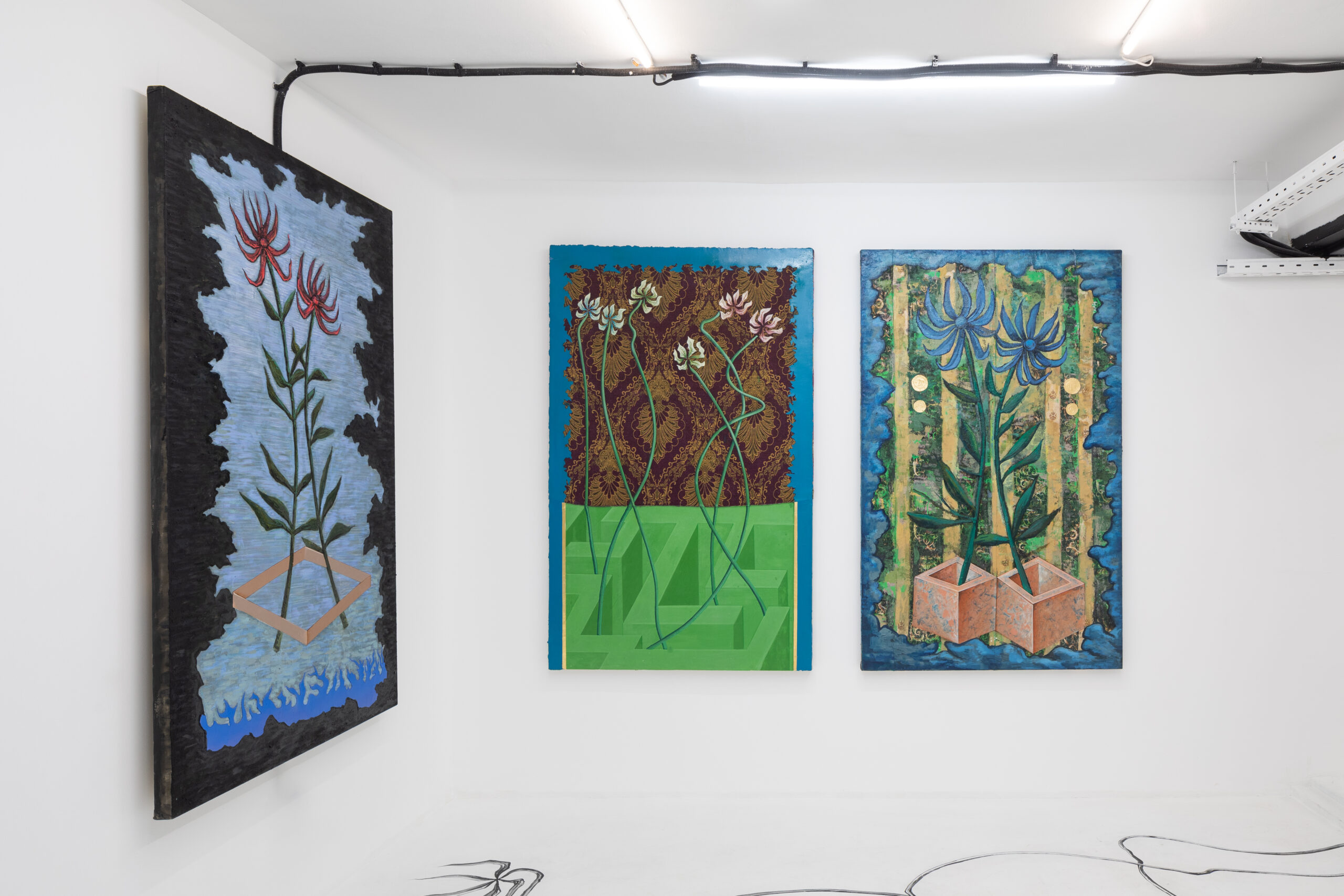
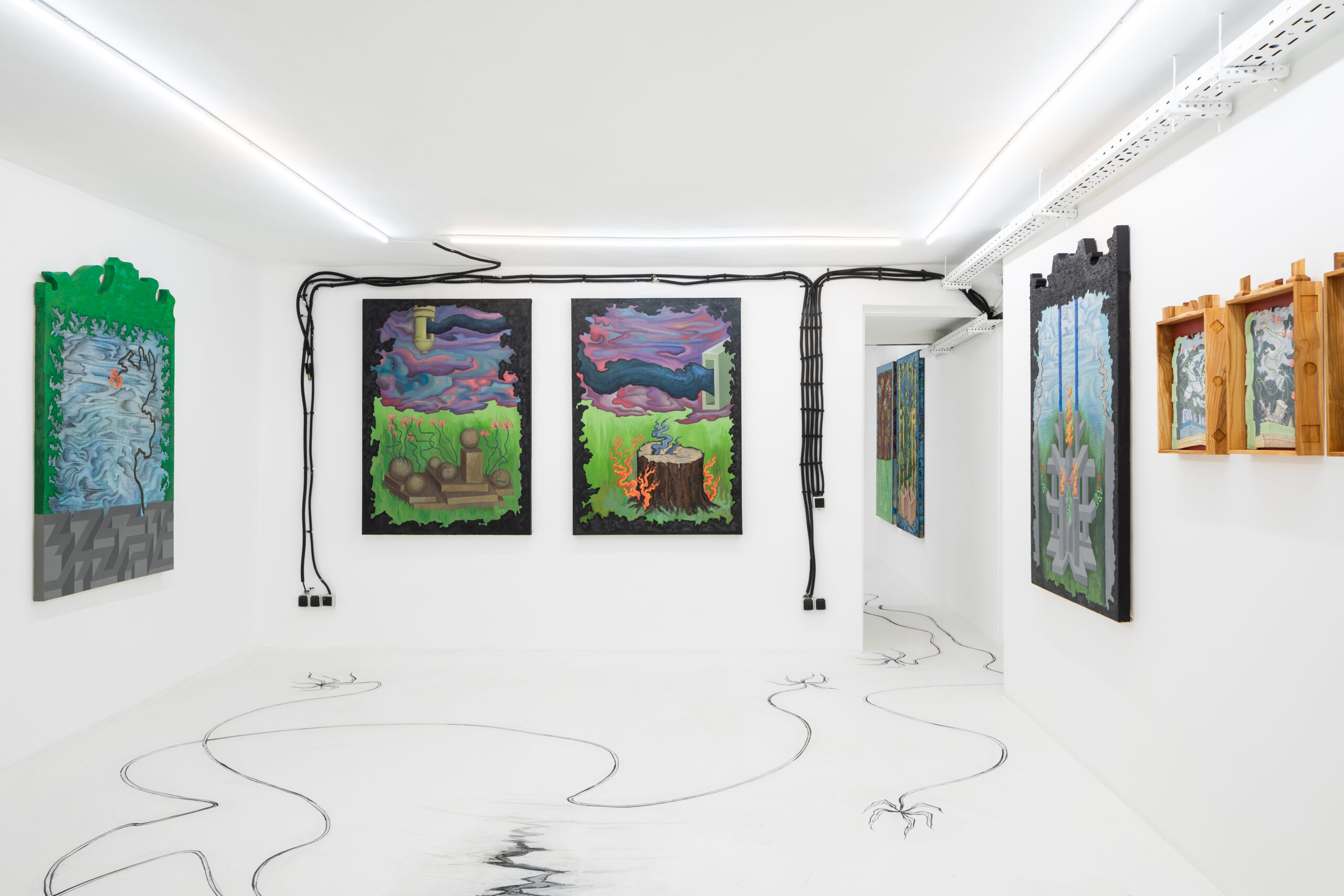
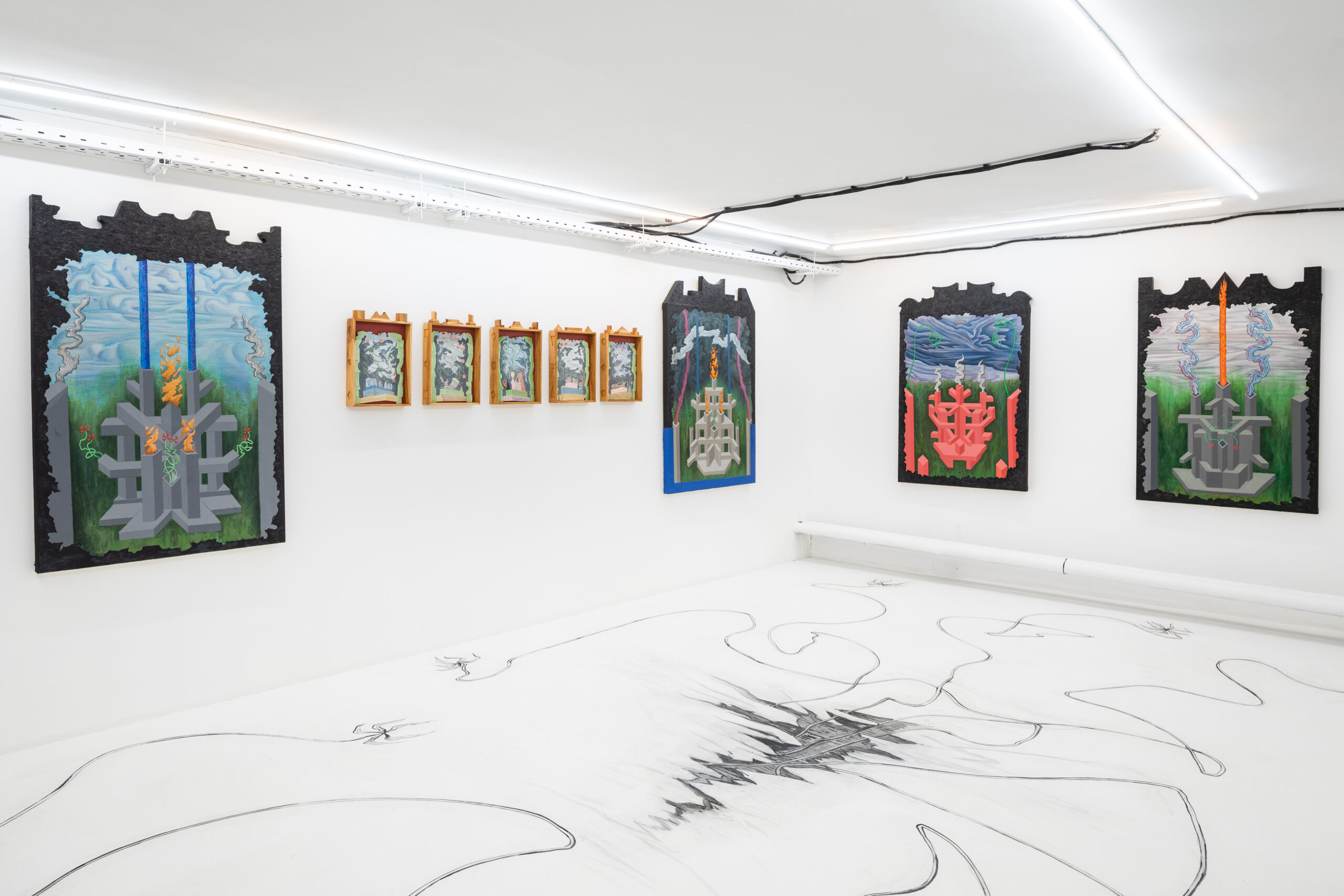
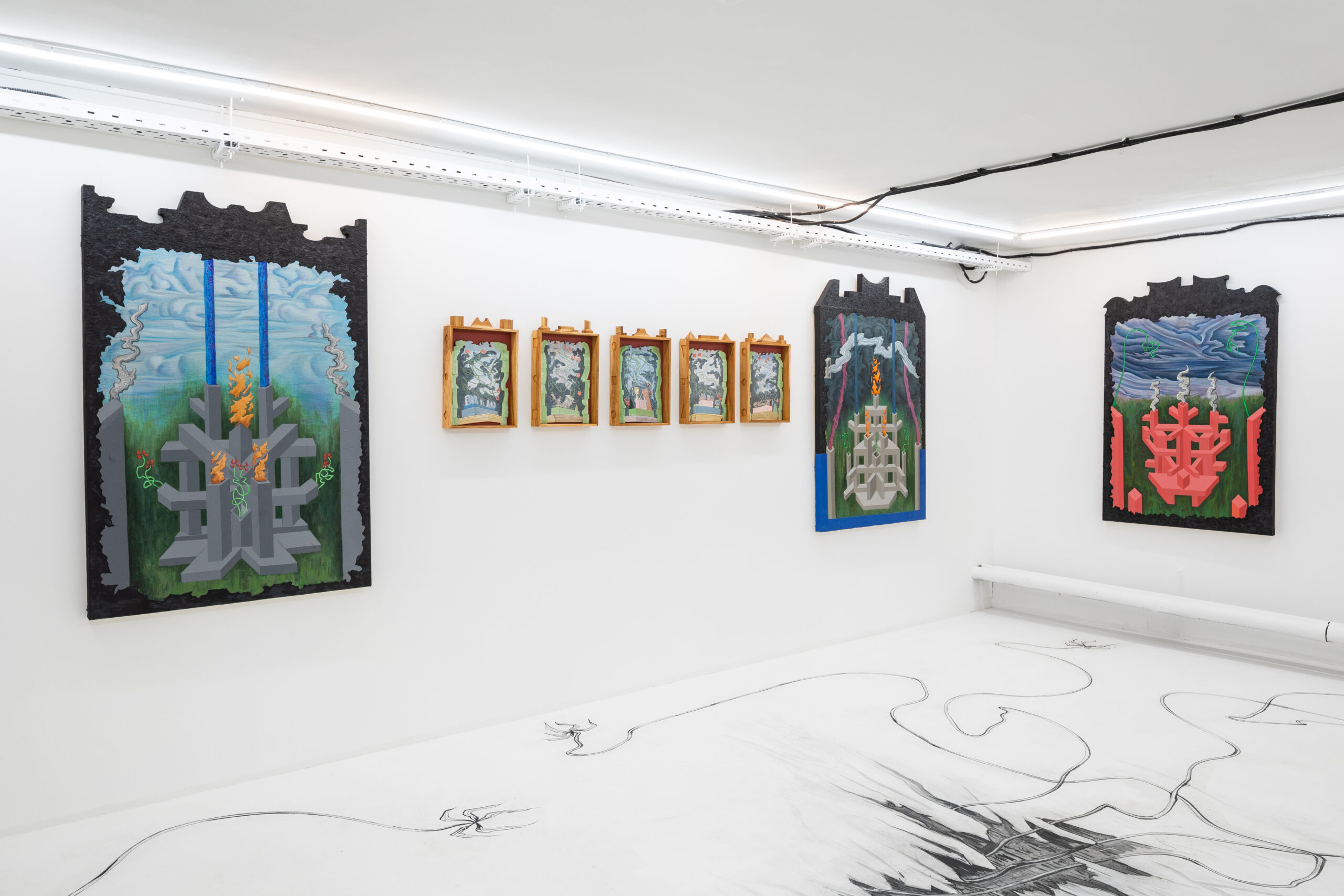
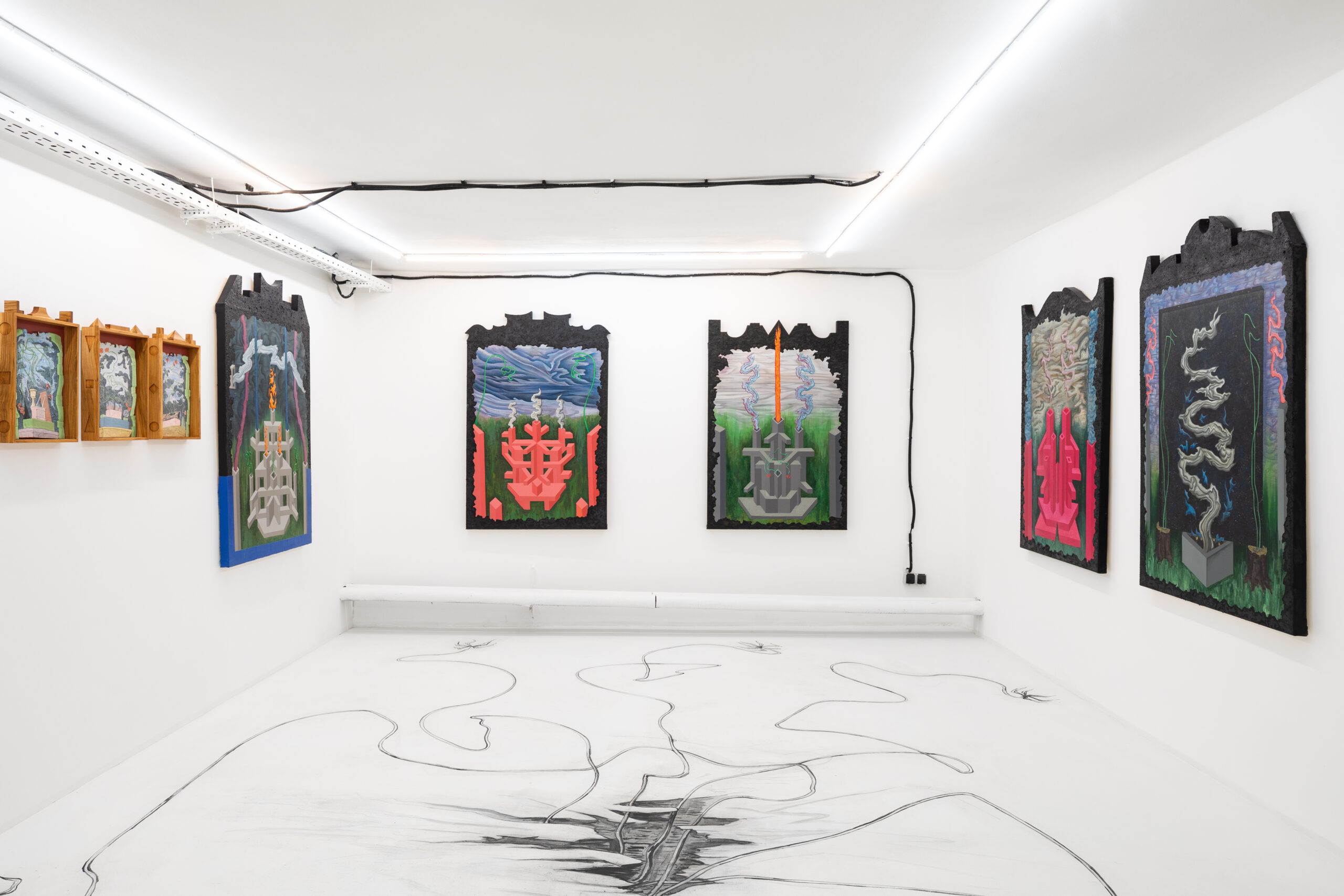
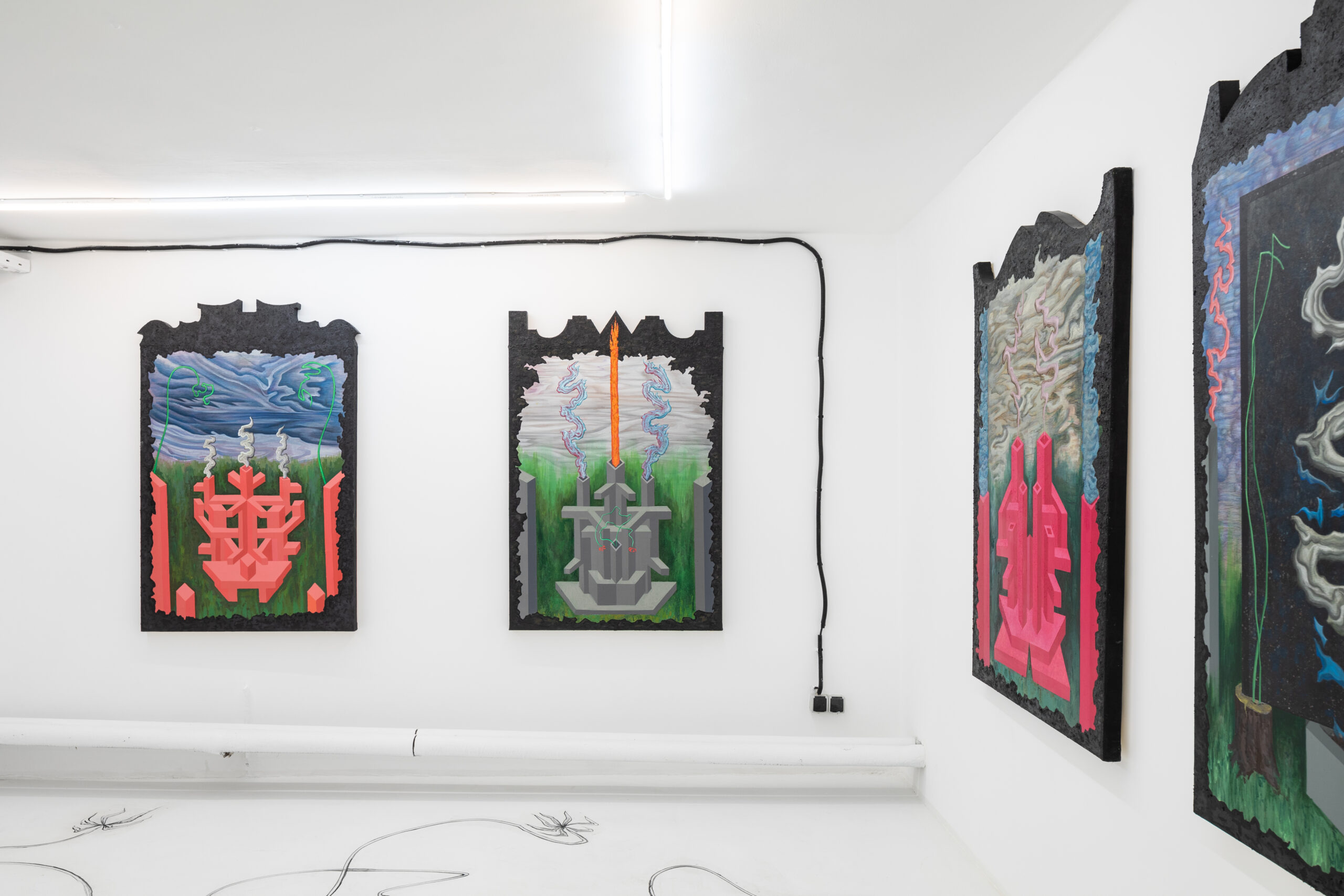
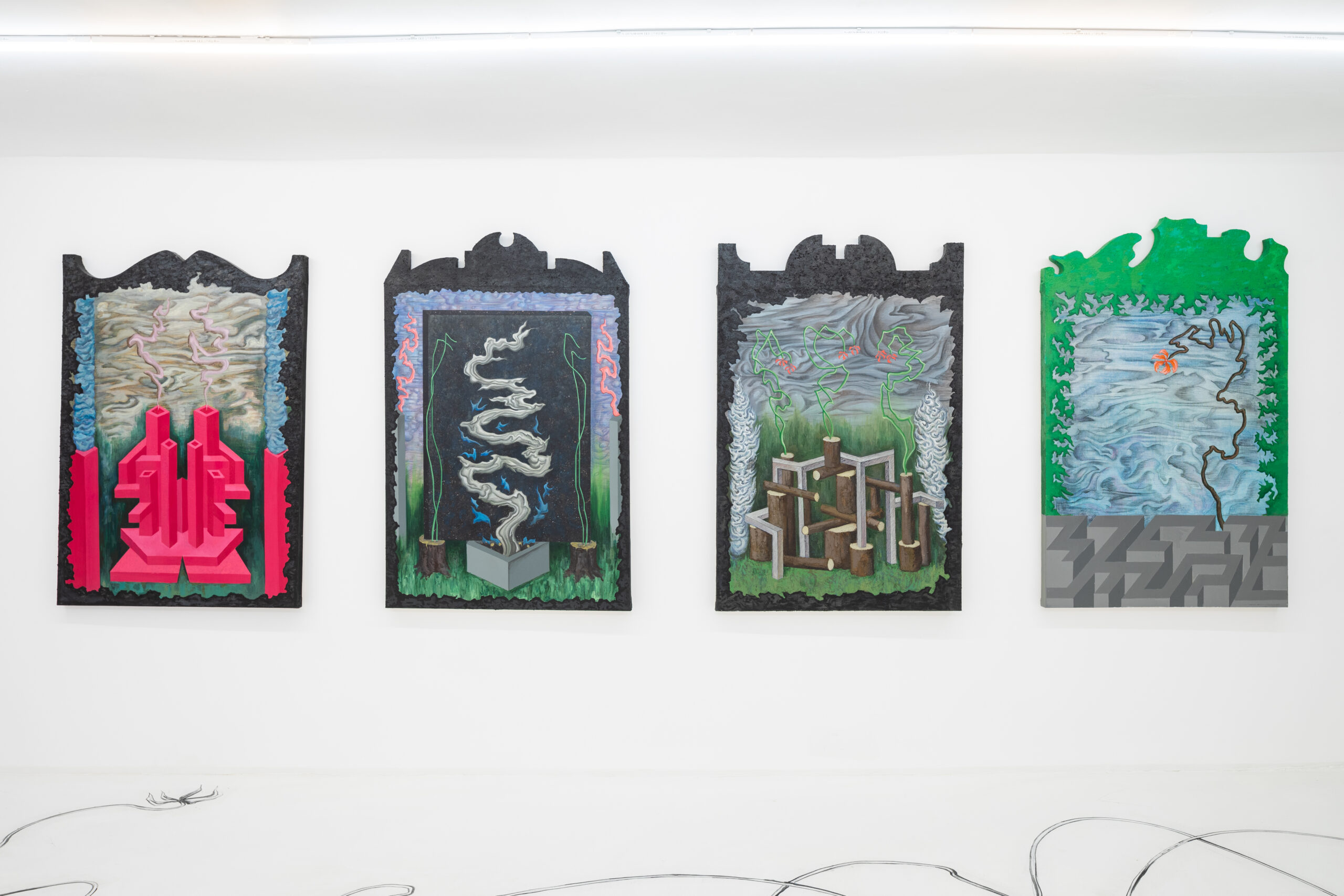
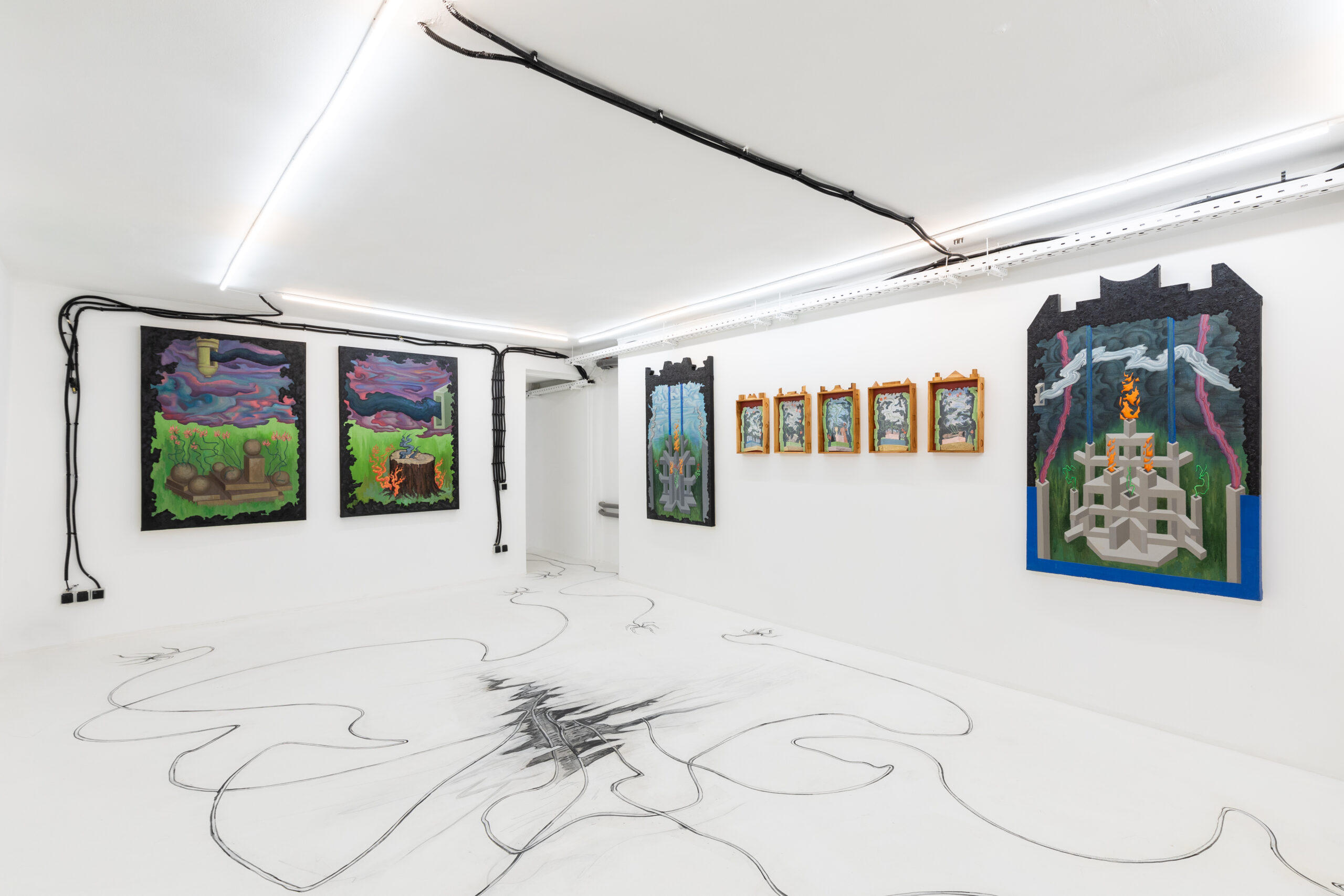
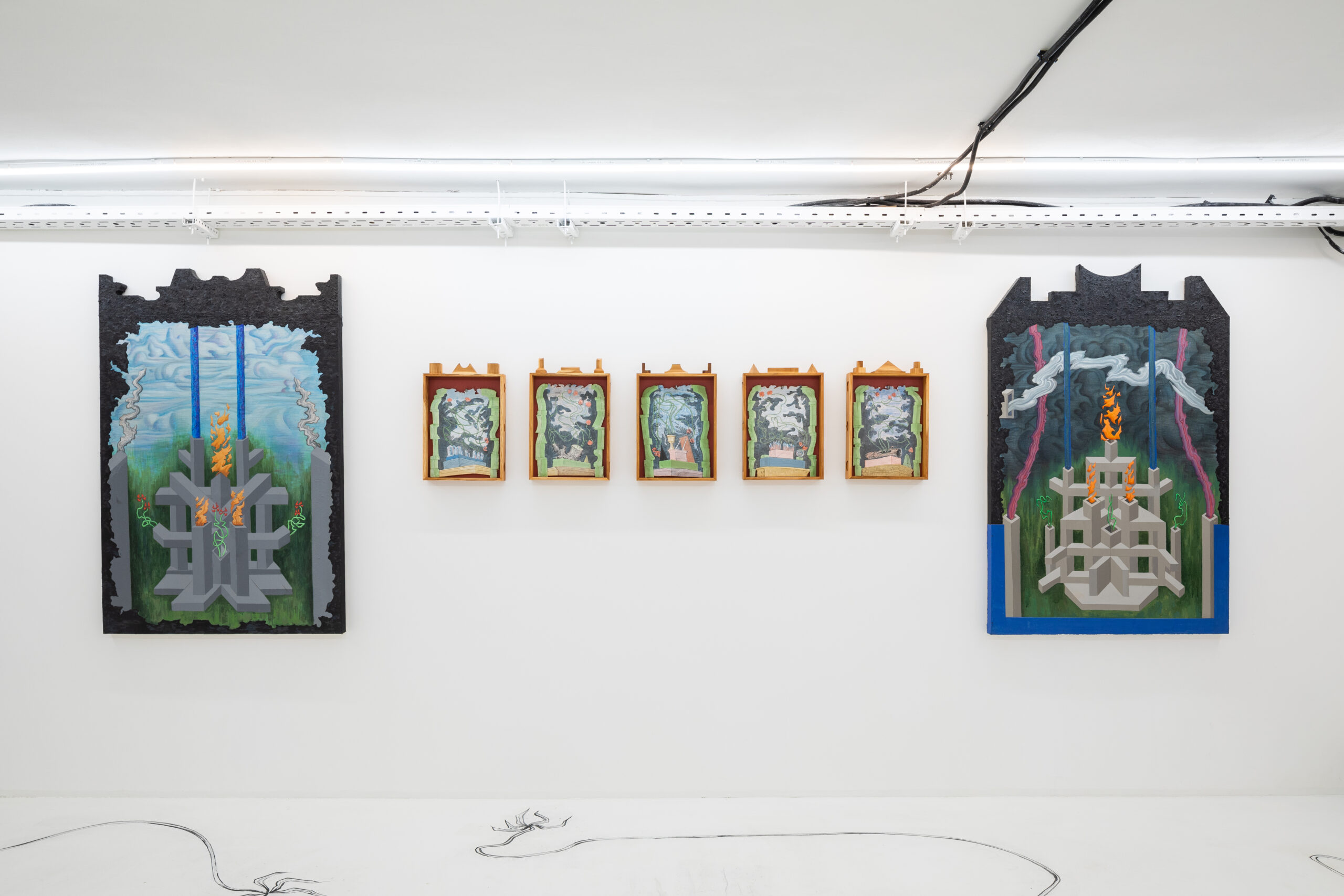
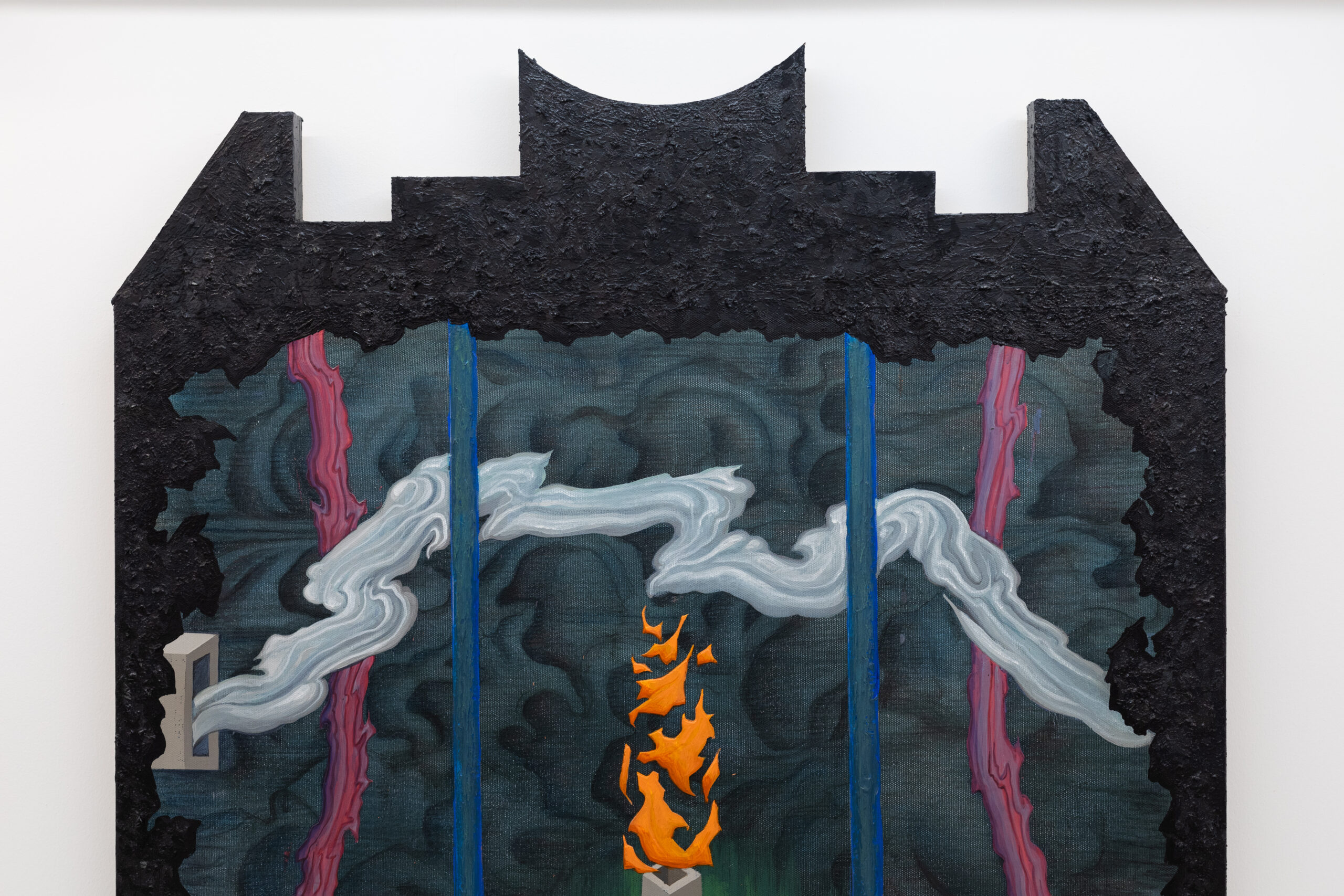
Anton Kushaev works on creation of such a painting, that whatever one says about , everything is true. This is not an easy task. How does he achieve it? First and foremost, through the absence of anthropomorphic subject, which in european figurative painting assessment of true and false depicting is usually connected with. In european art the truth is structured through the concept of revelation, given by God, similar to history seen through a series of events, previous to redemption and the Last Judgement, including the history itself. Media- theorist Paul Virillo emphatically pointed out that byzantine patriarch Nikifor in discussion with iconoclasts compared the absence of Christ’s portrayal to elimination of the Universe. In Kushaev’s paintings such identification of a subject with the Universe is simply impossible, due to the lack of a subject itself . Except the viewer, but the viewer, as we remember, is always correct.
Another technique used by the artist to make a sponge that absorbs any judgement, out of the painting, is consistent erasing of architectural guidance of picturesque elements and textures . Heavy, light, brushstroke, glaze, and bottom do not have a strict coordinates. Every european painting has a finale, that can be read either through its formal structure or through coherence of Bible’s episodes, in which it occupies a specific place. But in interiors of Kushaev, scenography does not imply phasing and rebirth. His new exhibition thematize the architecture of funeral home and submits asymmetry in optimistic genre of still life. In some works buildings that resemble conundrums, are garlanded with flowers, breathe with smoke and fire. In other works, quite minimalistic, according to the standards of Kushaev, still lives, in which unrealistic flowers, pulled out of the ground float over the electric blue and show off against green-screen. An elegy on the death of future? A scope of neural networks? This and that, and everything that can be recognized as interpretation of a selection of numbers.
Kushaev uses that language of iconography and alchemy, driving together the elements in neogothic synthesis. Visually it resembles another cycle of modern and symbolism and the most saturated historical reading of his works would have been a set of allusions to Bible, Shakhtel and Vrubel. A really big temptation to find dialogue with visionaries inspired by the Silver Age in works of Kushaev , illustration to visions of Valery Brusov from the poem:” In unfinished building” : «What was intended will come true . Big mass will reach the sky and in the deep, wisely assessed , will end the human race». But if Brusov’s “incompletion” of the final construction,
symbolizing the victory of constrictive mind over chaos, is perceived with anxiety and melancholy, Kushaev’s works, on contrary, prove the fundamental inability of final building’s construction. His elements are senseless,because for Kuhsaev history is not a fabric, as for Brusov, but rather quicksand.
Equally attractive would have been the path of interpretation , on which Kushaev looks back at 1960-s and looks at metaphysics of underground. In the framework of process, which philosopher Sergei Horuzhiy called “immigration into culture”, soviet artists appealed to temporality beyond the progress, which was implied by development of social relations in the official version of Marxism-Leninism. Dmitriy Krasnoperzev constructed plotless fragments of kinetical correspondence through accumulation of biomass. “No logic in matching, no clear semantic , “story-driven” connection between subjects» has Krasnoperzev “no – they represent the game of oblivion», states art historian Ekaterina Bobrinskaya. Nevertheless , still lives of Krasnoperzev is seen as a remedy for her, which was created in the Post-war era and which would heal the “vivid pain” of «recent destruction». In system of constructive and color combination, named “ieruts” Mikhail Scwarzman, also appealed to alogism of transcendence as opposed to material Soviet welfare and guiding philosophy. To put Kushaev in this line is only possible by publicistic effort , transforming the artist into a symptom of capitalism’s fatigue, by sovereign democracy, consumption or spirituality. But still Kushaev works on such painting, that whatever one says about it, everything is untrue. But even in such statement there is a lot of apophatic proof of God’s existence. And Kushaev’s art was not, has not been , but as in the Future Perfect Tense-will have been read forever.
Valentin Dyakonov